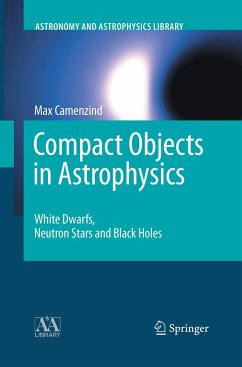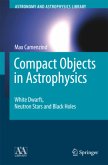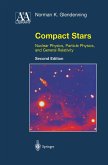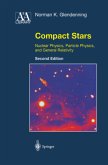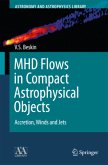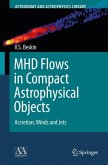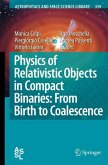Compact objects are an important class of astronomical objects in current research. Supermassive black holes play an important role in the understanding of the formation of galaxies in the early Universe. Old white dwarfs are nowadays used to calibrate the age of the Universe. Mergers of neutron stars and black holes are the sources of intense gravitational waves which will be measured in the next ten years by gravitational wave detectors.
Camenzind's Compact Objects in Astrophysics gives a comprehensive introduction and up-to-date overview about the physical processes behind these objects, covering the field from the beginning to most recent results, including all relevant observations.
After a presentation of the taxonomy of compact objects, the basic principles of general relativity are given. The author then discusses in detail the physics and observations of white dwarfs and neutron stars (including the most recent equations of state for neutron star matter), the gravitational field of rapidly rotating compact objects, rotating black holes (including ray tracing and black hole magnetospheres), gravitational waves, and the new understanding of accretion processes by means of the magnetorotational instability of accretion disks.
This modern treatise of compact object astrophysics uses the 3+1 split approach to Einstein's equations, and to relativistic hydrodynamics and magnetohydrodynamics. In each chapter problems and solutions help deepen the understanding of the subject. Both advanced students and researchers will appreciate this book as an advanced textbook and reference on this fascinating field of astrophysics.
Camenzind's Compact Objects in Astrophysics gives a comprehensive introduction and up-to-date overview about the physical processes behind these objects, covering the field from the beginning to most recent results, including all relevant observations.
After a presentation of the taxonomy of compact objects, the basic principles of general relativity are given. The author then discusses in detail the physics and observations of white dwarfs and neutron stars (including the most recent equations of state for neutron star matter), the gravitational field of rapidly rotating compact objects, rotating black holes (including ray tracing and black hole magnetospheres), gravitational waves, and the new understanding of accretion processes by means of the magnetorotational instability of accretion disks.
This modern treatise of compact object astrophysics uses the 3+1 split approach to Einstein's equations, and to relativistic hydrodynamics and magnetohydrodynamics. In each chapter problems and solutions help deepen the understanding of the subject. Both advanced students and researchers will appreciate this book as an advanced textbook and reference on this fascinating field of astrophysics.

